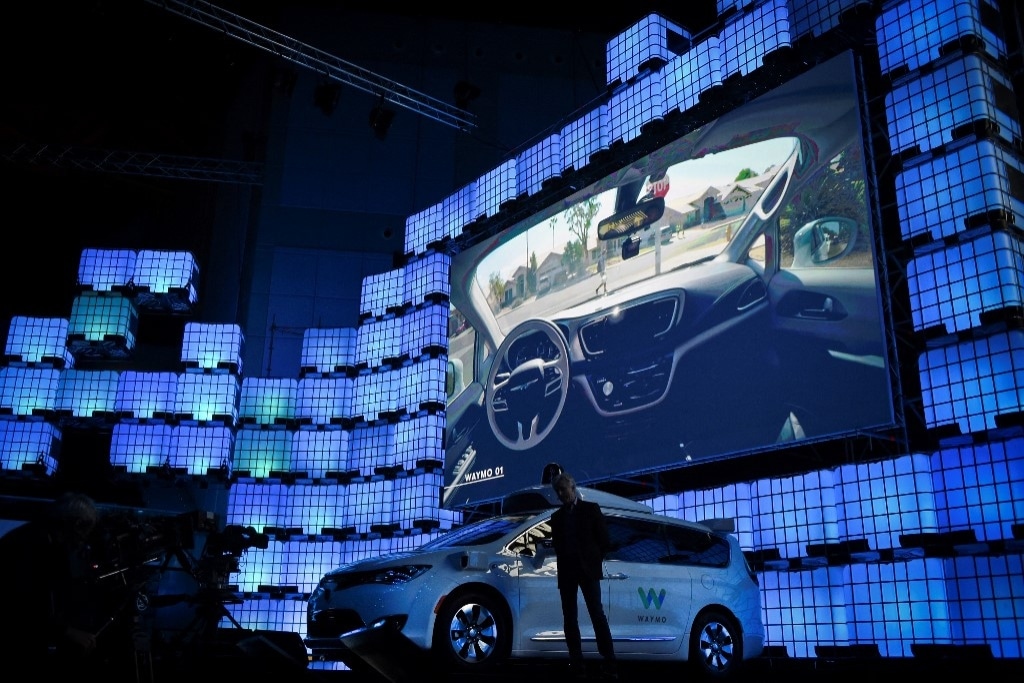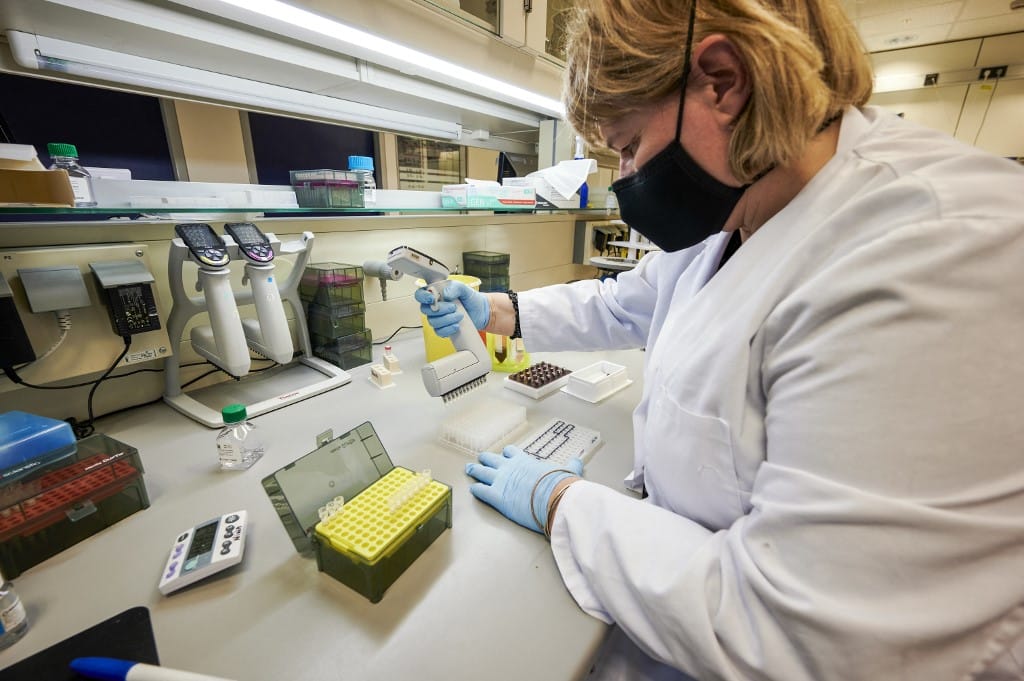
You may have come across unsettling narratives about robots taking over significant careers of the future, leaving the rest of us unemployed.
Never before in human history have technology advanced so rapidly to mimic what humans can do and the pressure for companies with fewer people come together.
A Goldman Sachs report in March claims generative AI “could expose the equivalent of 300 million full-time jobs to automation.”
In this once-in-generation convergence, it’s understandable to worry over the disappearance of well-known paths from university to stable careers and income.
Perhaps the biggest blow came with the rise of AI like ChatGPT and how it can code better, design better, lawyer better and analyse better than humans.
Its ascent is threatening white-collar jobs, which many had earlier thought AI could not perform.
The robots are coming for professional jobs
According to a 2019 report by the Brookings Institution titled “Automation and Artificial Intelligence: How Machines Affect People and Places,” around 25% of American jobs are highly susceptible to automation.
Occupations such as food preparation, office administration, and transportation were expected to be particularly affected. Such jobs involved repetitive physical tasks in predictable environments.
Think collecting and processing data, operating machinery or preparing fast food.
In 2023, technology has advanced to the point that accounting, software programming, human resources, and law roles are predicted to be lost, diminished or revamped.
At the same time, companies are facing pressure to operate with fewer people.
“We may be at the peak of the need for knowledge workers,” Atif Rafiq, a former chief digital officer at McDonald’s and Volvo, told The Wall Street Journal. “We just need fewer people to do the same thing.”
Meta Platforms CEO Mark Zuckerberg and IBM CEO Arvind Krishna have spoken about using technology to replace human workers.
However, there is a silver lining. While technology will destroy jobs, new careers of the future are set to be created.
A 2022 paper by economist David Autor states that “roughly 60% of employment in 2018 is found in job titles that did not exist in 1940.”
The same Goldman Sachs report found 85% of employment growth over the last 80 years is explained by the technology-driven creation of new positions.
Imagine the boom in jobs to come from emerging technology.
“Plus, augmentation outruns automation — workers use new tools to enhance existing jobs and create higher-paying ones,” wrote Andy Kessler, author of “Inside View,” a column for The Wall Street Journal on technology and markets and where they intersect with culture.
Am I qualified for the best careers of the future?
Research by McKinsey Global Institute has identified essential skills and attitudes that workers will need to secure the best careers in the future.
It found that university graduates possess more of these, though not all. The skills and attitudes that higher education can provide include:
- digital literacy
- programming literacy
- data analysis and statistics
- motivating different personalities
- inspiring trust
- driving change and innovation
- energy, passion and optimism
- collaboration
- digital learning
- humility
If you aspire to be at the forefront of progress and innovation, it’s essential not to wait until these future jobs become prevalent.
Instead, consider getting a degree that will equip you for the most promising careers in the future.
While it may seem impossible to predict what the future holds precisely, the following 10 examples represent the best potential careers of the future.
10 degrees leading to the best careers of the future:

Teachers need to be warm and caring, not cold and made of steel. Source: Fred Tanneau/AFP
1. Bachelor in Teaching
While ChatGPT is being used as a teaching aid in classrooms, it’s not going to replace teachers anytime soon, if ever.
To fully replace teachers, a robot needs to be able to connect emotionally with students, use animated body language to get students to respond, and more.
There are more drawbacks to robot teachers including potential breaches of student privacy, causing millions to lose jobs, and technical deficiencies.
To stand out as teachers in the future, it’s best to focus on areas that robots can’t, i.e. inspiring and coaching students to learn and leaving the menial, repetitive tasks to robots.
In a 2020 survey, teachers listed “taking attendance, making copies, and other administrative tasks,” “grading,” and “translating/communicating with emerging bilinguals” as tasks that AI robots could take over.

Content creators record a panel discussion on the Samsung Galaxy S23 Ultra at the Samsung Galaxy Creator Collective 2023 at Gilley’s Dallas on March 21, 2023 in Dallas, Texas. Source: Richard Rodriguez/Getty Images for Samsung Galaxy Creators Collective/AFP
2. Bachelor in Communication
There’s been a huge and undeniable boom in content creators over the past few years. The success of these professionals can be explained by the fact that people today want to connect more with real people, not brands.
While you don’t necessarily need to have a degree for this job, having one will deepen your understanding of marketing, copywriting, film editing or search engine optimisation.
A robot could probably do these better but won’t be able to pair this with original storytelling.

Personal training is one of the best careers of the future. Source: Javier Sorano/AFP
3. Bachelor in Kinesiology
The rise of social media has had more and more influence on our body image, increasing the demand for people who want to get fit and be healthy.
However, as many are busy juggling studies and work, keeping physically active can be hard. This is where personal trainers come in.
The need for personal trainers has increased and is expected to increase by 15% by 2029.
People need the help of trainers to get them off the couch and to create personalised routines for them.
Enrolling in a bachelor’s programme like kinesiology can equip you with an understanding of nutrition, training principles, weight control, and specialised skills to work with different groups such as children, older adults or individuals recovering from physical injuries.
4. Bachelor of Psychology
Similar to doctors and nurses, mental health workers will never be out of a job.
Between 66% to 79% of psychologists say they have noticed an increase in the number of patients with anxiety disorders and depression.
According to the World Health Organisation (WHO), mental health disorders affect one in four people worldwide.
This high prevalence indicates a significant demand for mental health services and professionals who can provide assessment, treatment, and support.
While some have reportedly turned to ChatGPT for mental health advice, the answers sound like they’re scraped from WebMD articles about anxiety and have in extreme cases, reportedly advised a man to commit suicide and another to leave his wife.
“We know in the psychology literature, that part of the efficacy and what makes therapy work, about 40% to 50% of the effect is from the rapport that you get with your therapist,” says Maria Hennessy, a clinical psychologist and associate professor at James Cook University, to Al Jazeera.
“That makes up a huge part of how effective psychological therapies are.”
5. Bachelor of Computer Science
Virtual reality is one area that is definitely going to expand in the next few years.
With the 2021 announcement of the Metaverse, a series of interconnected virtual worlds created by Meta, it’s clear that VR will be hugely impactful in the near and far future.
As this technology becomes more accessible, affordable, and sophisticated, the demand for skilled professionals in the VR field is expected to grow, offering more roles in even more departments, from marketing to video game development.
If you are interested in a career in this field, you can pursue several degrees to equip you with the necessary skills. These include:
- Bachelor of Computer Science: A versatile choice that opens the doors to many opportunities in the VR industry.
- Bachelor in Game Design: Gives you the skills to create immersive and interactive VR experiences.
- Bachelor in Mechanical Engineering: Builds a solid foundation to handle the hardware design, electronics and robotics used in VR hardware.

As the use of drones increases, a bachelor’s degree in aviation can equip you for a career in the future. Source: AFP
6. Bachelor in Aviation
In the next few years, experts say we can expect to see a boom in the use of drones across many industries.
Here are several jobs that are expected to be created in the next decade due to this trend:
- Wildlife conservationist: To monitor and protect species in danger zones across the planet
- Energy inspector: Some oil companies are experimenting with drones equipped with thermal cameras that can detect leaks and weak spots along the pipeline
- Search and rescue: Drones can be deployed during natural disasters to locate survivors
- Delivery service: Amazon is working on using drones to deliver packages at a faster rate
Recognising the rise of drones, several institutions have introduced programmes to train individuals in preparation for these careers.
Here are some programmes to consider:
- Bachelor of Science in Aviation-Unmanned Aircraft Systems, University of Nebraska Omaha
- Bachelor’s Degree in Unmanned Aircraft Systems, Embry-Riddle Aeronautical University
- Unmanned Aircraft Systems Operations, University of North Dakota

The introduction of self-driving cars creates the space for many new jobs in the future. Source: Patricia De Melo Moreira/AFP
7. Bachelor in Engineering
Engineers apply science to turn the resources of nature into the use of humankind. They design or develop structures, machines, apparatus, or manufacturing processes.
ChatGPT can probably do this — but engineering is so much broader and more complex than that.
Engineers need to forecast how these machines and structures will behave under specific operating conditions and consider how they will affect the safety of the people who use them.
A robot can’t predict the future or know fully what’s considered “safe” to humans.

A career in coaching is expected to be in demand in the future. Source: Lance King/AFP
8. Bachelor in Coaching
A coach is a professional who helps individuals progress in their careers or life. Similar to psychologists, this is a function that’s inherently human as much of coaching depends on human-to-human interaction.
Today, coaches can specialise in diverse fields, including finance, relationships, emotional intelligence, weight management, spirituality, and more.
If this sounds like a career you are interested in, prepare for it by pursuing a bachelor’s in coaching. Though not as common, a number of universities offer this course, such as:
- Bachelor’s Degree in Coaching, Liberty University
- Bachelor’s Degree in Coaching, University of Cumberlands
Alternatively, a psychology or social work degree could also lead you to a carer as a life coach.
9. Bachelor in Data Science
Since November 2022, speculations have been rife about whether data analysts will be replaced by generative AI like Bard or ChatGPT.
The short answer is no. But their roles as they know it will be refined.
“To briefly summarise, generative AI utilises existing data sets to ‘train’ an LLM to generate a probability-driven answer based on whatever training data it has been fed,” writes data strategist Galen Okazaki.
“And while you can continuously fine-tune your model with ever more precise data sets, how would you train your model on multi-layered, situational questions that have never been asked before?”
Tasks such as data cleaning and preprocessing may be replicated by generative AI but companies will still need human expertise and judgement in areas such as data analysis, model building and interpretation, and decision making.
Experts also predict there will be new demand for data analysts who can use generative AI while practising human decision-making, problem-solving, leadership, strategy, leadership, and team-building.

Scientists at deCODE genetics are seen working in the laboratorium in Reykjavik, Iceland. Source: Halldor Kolbeins/AFP
10. Bachelor in Genetics
A deep understanding of how ethics impact how we design and use technology in ways that impact all that we know about being human — that’s what working in the gene and cell therapy sector requires.
A degree in this field exposes one to how to edit genes to not just change a newborn’s eye colour or height but to reduce the risks of serious health conditions, which can be a matter of life or death.
And plenty of controversies as it’s basically playing the role of a god.
Not only is this inimitable by generative AI and impossible to trust in robots, but there are also set to be over 18,000 new jobs in this sector by 2030 alone.










